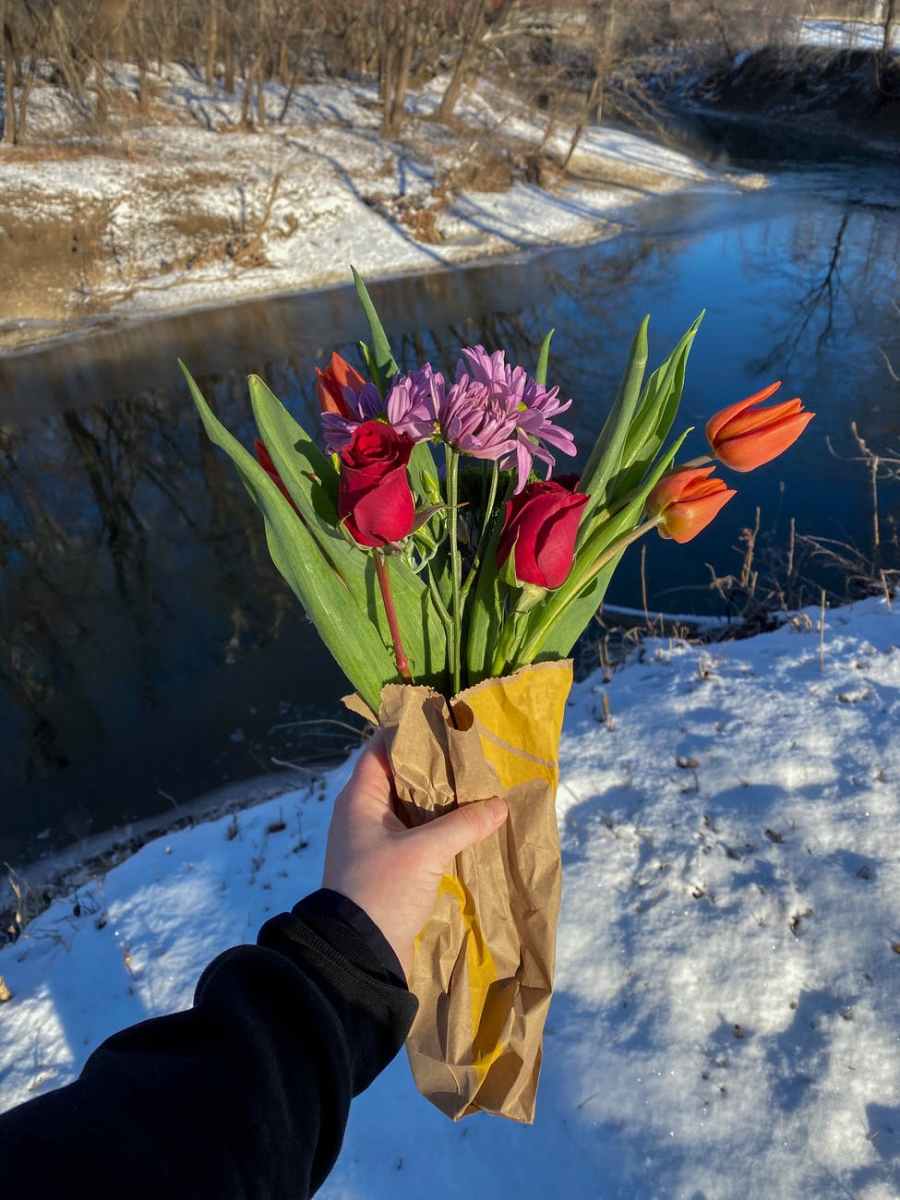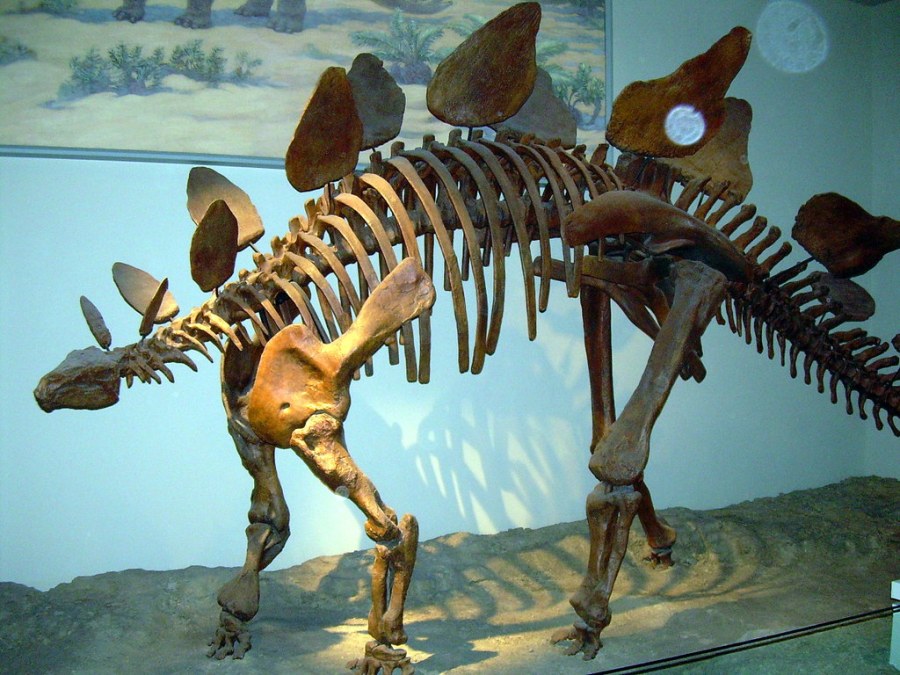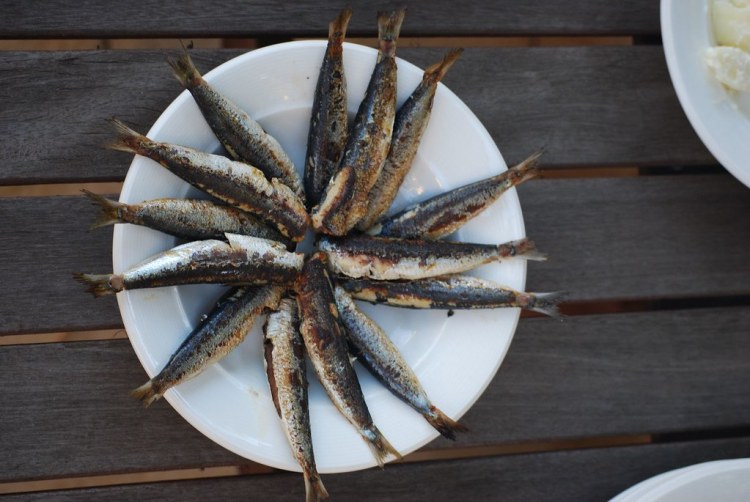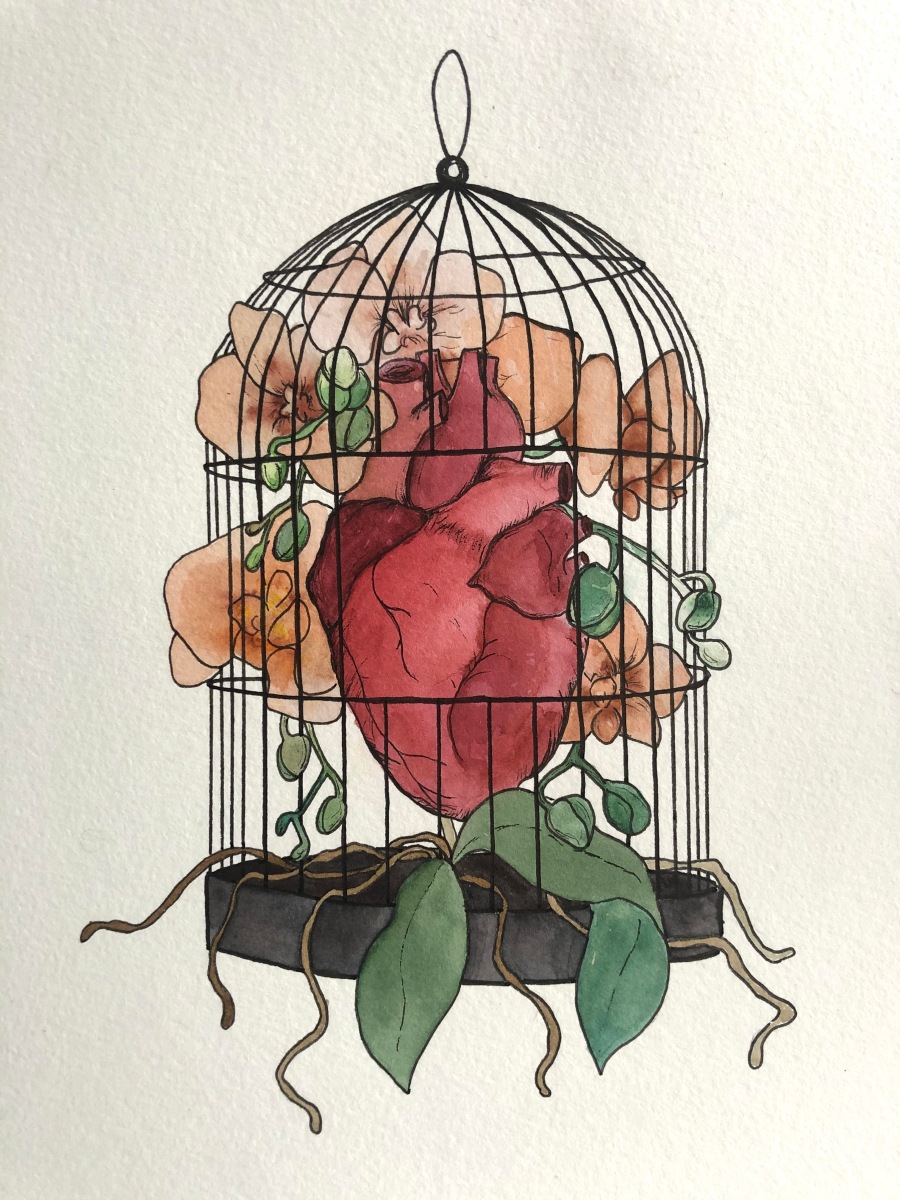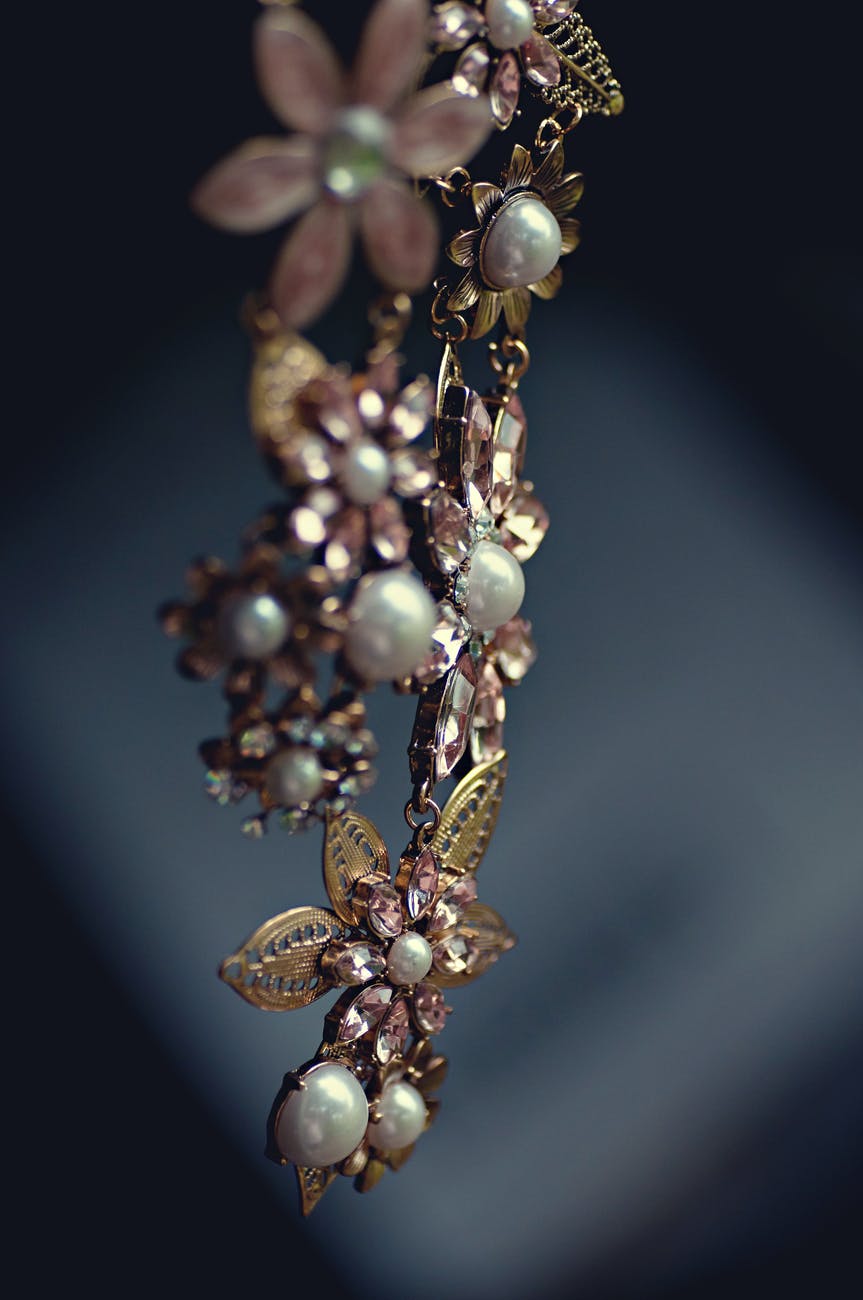By Julie Hanson
Each morning my eye goes straight to the high bare branches of the ash
where a plastic HyVee bag tugs and puffs
but has no choice.
Well I won’t see that in France,
I say to myself, but the consolation is as temporary
as the trip will have been
once I’m standing here again,
staring at that bag
and thinking, Now that’s the kind of thing I never saw in France.
It looks so orphaned and waif-like
against the shiny gray bark of the ash and the muted gray of the sky,
so white, so insubstantial, so wanting,
and, even with its one red word,
so caught there in the tree.
I’m certain it can hang on to the branch that has pierced it
for another six weeks.
There may be another bag in the maple by then,
recently freed from a thatch of wet leaves
or come tumbling
lightly from the garbage truck
that will have taken on that day no offering from us.
On the day we come back, it will still be
bare as scattered bones out there,
not yet the middle of March.
The ground will be hard. The grass will be tan.
This is so like me,
imagining,
not the cottage roofs of flat stones
pictured in the Green Guide to the Dordogne,
the massive ramparts for the great gone door of Domme,
but the day after-these littered horizons, and winter
still trying to get out of the yard.
On the day we come back
the ground will be hard. The grass will be tan.
But there will come a day much deeper into spring,
a day shady and humid
in the unfurled foliage of June,
when I realize I haven’t thought about that bag in weeks
because I can’t see it at all,
I can’t see its branch.
The massive ramparts for the great gone door of Domme
will have lost a lot of bulk by then,
resembling more and more the sketch
on page twenty-one
in the Green Guide to the Dordogne.
Read More
